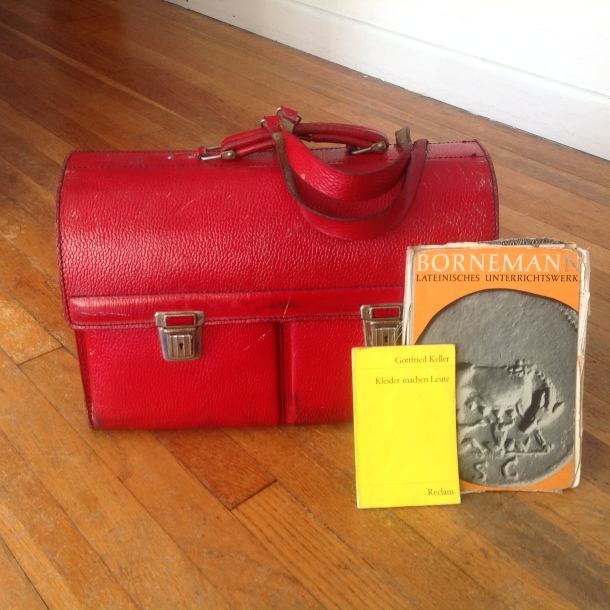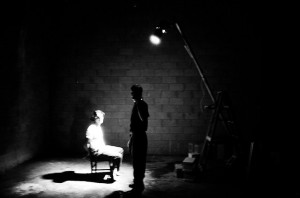Niko is a good man, an intelligent man, an interesting man, and a gregarious man.
So far, so good.
Niko is also a man of great appetites, a man with high expectations, a man who insists upon his creature comforts, and a man who has trouble taking “no” for an answer.
In other words, Niko is high maintenance.
I’m not sure I would have sought Niko’s friendship if not for the fact of his marriage to my best friend, Hanna, but we had become close. Looking back from my current vantage point, I realize how much I had Hanna to thank for brokering the relationship. And how hard I had worked at it because of my love for her.
When it came to Niko, I took my lead from Hanna. Niko suffers from paranoid schizophrenia. What if I had not been able to distinguish personality quirks from manifestations of illness? I trusted her completely when she explained what he required; and why he could or couldn’t manage this, that, or the other. I imbibed deeply when both of them told stories of his traumatic childhood and his continued mistreatment at the hands of, well, just about everyone. Almost no one understood him, evidently. He was special. He was fragile. He needed preferential treatment. I never questioned this. It was just this way.
I have voiced negative sentiments about triangulation but in this instance, I found it helpful that Hanna could translate Niko to me and visa versa. Hanna had gladly assumed the roles of spouse and caregiver; and the title of caregiver called for stints as go-between, mouthpiece, and champion. Due to her more stable mood and reliable judgment, she was also their family C.E.O. C.O.O., and C.F.O.
It was natural for her to advocate for Niko. On the other hand, Hanna had a good sense for the times when Niko wasn’t living up to his potentials. She knew when and how hard to push. Hanna knew when Niko needed a reality check–both figuratively and literally–and when the best medicine was a good swift kick in the ass. When we spent time together, we made a nice little three-legged stool. I didn’t realize that Hanna’s leg was about to give out.
Shortly after their arrival from Germany, I briefed Hanna on my decision not to allow Niko to use my laptop. She wished I had told them sooner, and she anticipated his upset. But she saw my point and agreed the decision was a fair one. I breathed easier knowing she understood I did not mean harm. I counted on her to help Niko towards acceptance and to help me work towards a solution.
Learning of my decision, Niko was quick to embark on a campaign to charm or cow me into giving over my computer. Failing to win my submission, he continued to needle me throughout the visit. Now and again he lobbed some outright grenades.
As far as I could tell, Hanna left him to it.
In past years, Hanna had made it her habit to help with dishes, laundry, and cooking. This visit was different, and I am coming to a place of greater kindness regarding what felt like an abandonment. I am more in touch with my feeling of ownership as well, that vague twinge of security in thinking that Niko had her on loan during those months and years when we could not see one another. A few years removed from our unhappy end, I am especially able to appreciate how exhausted and broken she must have been when she arrived hoping—knowing, really–that J.A.N.E. spelled H.O.M.E. She had needed a safe haven for care and recovery.
Hanna had attained middle age, and the demands upon her had only increased. I had witnessed over several years how hard she had worked in a physically-demanding hourly position to give Niko as much as she could. Her steadfast provision had taken a harsh toll. Either our friends lacked support at home or they had rejected the terms of this support; and so providing for Niko’s essentials and extras frequently meant breaking the bank, her back, or both. I have thought often about how spent, betrayed and alone my dear Hanna must have felt that summer, and I will say more about this in time.
Without Hanna’s help, I was hard pressed to manage my family, the household and my part-time counseling job, let alone attend Niko in the fashion he desired.
Sociable between rounds and ever in need of conversation, Niko set up court on the patio with his coffee and smokes. He loved the peace and quiet, and this is where he lived when he wasn’t in the basement—at least until relations between us went from iffy to rancid. He was without his default entertainment, the computer, and was not often able to muster the energy to leave the house.
When Niko asked, early in their stay, why I was avoiding him and why I never made time to talk, I was at a loss. As taxed as I felt, I had been making a point of spending time with him daily. In fact, I was spending more time with him than I was with anyone else, and our children were starting to grumble. He seemed to have forgotten our pre-visit talks and the fact that I was no longer the stay-at-home mother of small children.
Hanna failed to show up in my defense. There was none of her humorous chiding: Niko, don’t be an ass. She spent two hours with you this morning over breakfast. Jane has other things to do besides entertain you, you big lug.
In her absence, he pouted, hounded, and accused. And not always subtly.
One time, further into their visit, Hanna and Niko arrived home after a long night at their new favorite hangout, a biker bar in a nearby town. They had taken to sleeping until about 1:00 or 2:00 p.m., puttering around the basement apartment, going to the bar until closing, and then having drinks with the owner for a few more hours. Since their arrival, Niko had not had the stamina to do much outside the house; and I imagine this outlet helped him meet his social needs while assuring minimal contact with my family.
This particular night, something had gone wrong with our refrigerator and the kitchen had flooded. Tired and seeing no effective way to help, Hanna passed through the kitchen with a sympathetic glance. The moment Niko walked through the door, however, he began bailing and mopping as though possessed. Wide-eyed and alarmingly animated, he told a disjointed story about spewing sewage. He appeared to be seeing it in real time. Worried, I shared with Hanna my suspicion that he was becoming psychotic.
The following day, when the two of them ambled up to the kitchen, Niko launched a sudden verbal assault. His rage caught me off guard. My legs turned to rubber, and I gripped the table to keep from going down.
How dare you talk behind my back? How dare you tell tales about me? How DARE you tell Hanna I was psychotic? I was recounting a story which actually happened when our building’s sewage system backed up into our apartment last year! You knew that! I had told you about it!
Where was Hanna? Three feet from us, looking quietly away.
I explained that I must have misunderstood. I tried to explain. I apologized profusely. I thought that all those years had earned me the benefit of the doubt; but they had accrued no interest, and my account was overdrawn. I knew that day that Hanna would no longer keep my confidence.
When it became apparent, not long after the flooding incident, that Niko was indeed on the verge of a break, Hanna actually spoke these words to me. They were intended as solace: Don’t feel too bad. I’ve made him relapse before too.
The hardest part may have been Hanna’s final vanishing act.
About ten days before their scheduled departure, Hanna approached me quietly: Niko wants to re-book the flight for a later date. What do you think?
My response was a diplomatic but firm N.O. I was concerned for myself and my family. I was concerned for Niko’s mental health. I was concerned for Hanna’s job. Her boss had been upset at the length of her original vacation request.
Hanna stated her agreement. She said she was relieved to have her own views validated, and she would just have to break it to Niko.
A few days later, Niko invited me to the basement apartment for a discussion. He informed me (informed) that he and Hanna had decided to extend their stay. Not having the use of my computer had set them back, he said, but he was certain that 10 more days would be sufficient for them to do all the traveling and sightseeing they had originally planned. He knew they could still make the trip a success.
Hanna was as quiet as a church mouse.
I stayed calm. I explained why I thought this idea was likely to lead to further disappointment. If four weeks had not been long enough to get him out of the house for sightseeing, what made him think 10 more days would do the trick?
Hanna remained silent.
I explained why I thought this was a risky plan.
Hanna remained silent.
I said that though it pained me greatly, I would not be able to support their plan. I told them they had to leave the house as agreed.
They extended. Hanna extended.
For several tense days, I watched and waited. There were no signs of packing. I didn’t know what to do.
On the evening of their original departure date, there was still no movement, and I was desperate. I was halfway through my preparations for a late dinner when Hanna emerged from the basement to issue Niko’s invitation for a Greek dinner out.
I can see myself standing stupidly with the pizza dough in my hands.
Niko wants to leave at 8:00 or 9:00 p.m.
I declined. The situation felt surreal.
She continued: But Niko has been trying to take you guys out ever since we got here. He saved up his money for a long time to treat you. He will be so hurt.
Disbelieving, I responded: Yes. But we have had this discussion again and again. I told him several times that we would love to go but we really need to make plans ahead of time and consider whether or not it is a school night. Niko likes to start planning at dinner time to go out the same night.
She retreated to the basement to deliver the bad news.
A short time later, Niko thumped up the stairs, wronged and angry.
I can’t believe that in the four weeks we have been here, you have never once been able to find one night to take me up on my invitation!
Again, I explained.
You will never guess what happened next: Hanna remained silent.
Soon I heard the sound of showering and a flurry of packing. My best friend and her husband departed around midnight. I guess you could say I kicked them out.
I saw them one last time before they left for Germany. I’m still debating whether or not to tell that story.
This post is part of The Story of Hanna. For the prior installment, click here. For the next installment, click here.









